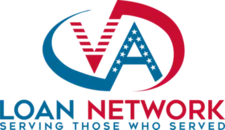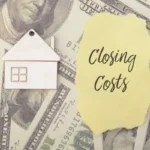
VA Loan Closing Costs
The VA loan program is a popular financing option that’s made specifically to help veterans, active-duty service members, and eligible surviving spouses buy homes.
This article breaks down closing costs, how they’re calculated, and tips for managing them so you’re fully prepared when it’s time to buy. Understanding these expenses upfront can help you avoid surprises and make the most of your VA benefits for a smooth, stress-free home-buying experience.
What are Closing Costs on a VA Loan?
VA loan closing costs are fees involved in obtaining a loan backed by the U.S. Department of Veterans Affairs (VA). These costs may include:
- Origination Fee: Charged for setting up the loan, generally capped at 1% of the loan amount.
- Funding Fee: This fee can be added to the loan balance, but it increases total interest costs over time.
- Discount Points: An optional fee that may be negotiated with the seller to reduce the loan’s interest rate.
- Appraisal Fee: Covers the cost of evaluating the property’s value to ensure it meets VA standards.
- Title Insurance: Protects against title issues and may be included in the loan amount.
- Survey Fee: Pays for a survey to confirm property boundaries.
- Attorney Fee: Covers legal services to facilitate the transaction.
- Prepaid Expenses: Upfront payments for items like property taxes or homeowners insurance.
Total closing costs for a VA loan typically range from 2% to 6% of the loan amount, depending on factors like loan type, lender, and property size. While buyers cover most of these costs, sellers can contribute up to 4%, often covering agent commissions, brokerage fees, and termite inspection costs.
A loan officer or mortgage consultant can provide details on allowable fees for VA loans.
Key Benefits of VA Loan Closing Costs Compared to Other Loan Types
VA loans generally have lower closing costs than conventional and FHA loans due to several built-in benefits, including no private mortgage insurance (PMI) and no required down payment.
| Cost Type | VA Loan | FHA Loan | Conventional Loan |
|---|---|---|---|
| Funding/Upfront Fee | 0.5%–3.6% (VA Funding Fee) | 1.75% (Upfront MIP) | None, but PMI may apply |
| Mortgage Insurance | None | Monthly MIP required | Required if <20% down (PMI) |
| Down Payment | None | Minimum 3.5% | 3%–20% |
| Origination Fee | Up to 1% | Varies, typically around 1% | Varies, generally around 1% |
“VA loans offer significant savings due to the lack of PMI and reduced closing fees. These savings help veterans achieve homeownership without the heavy upfront costs often associated with other loan types.”
Other Upfront Costs Associated with VA Loans
In addition to standard closing costs, VA loans include some unique upfront costs, with the most notable being the VA Funding Fee. Understanding these additional expenses can help veterans and service members accurately prepare for the financial requirements of a VA loan.
VA Funding Fee
The VA Funding Fee is a one-time charge applied to all VA loans, which helps sustain the VA loan program and reduce taxpayer costs. This fee varies based on factors like whether it’s the borrower’s first VA loan and the down payment amount, if any.
- First-Time Use: Generally 2.3% of the loan amount with no down payment.
- Subsequent Use: Typically 3.6% for borrowers who have used a VA loan before.
- Reduced Funding Fee: Borrowers who make a down payment of 5% or more receive a reduced funding fee rate.
For example, a veteran purchasing a $300,000 home with no down payment will face a funding fee of $6,900 (2.3% for first-time use). Veterans with a service-connected disability may be exempt from the funding fee entirely, offering a significant cost-saving benefit.
Other Common Upfront Costs
Apart from the VA Funding Fee, several other upfront costs may apply to VA loans, similar to those in conventional and FHA loans:
- Appraisal Fee: An upfront payment required to assess the property’s value. For VA loans, this fee is typically around $500 but can vary depending on the location.
- Loan Origination Fee: Often up to 1% of the loan amount, this fee compensates the lender for processing and underwriting the loan.
- Credit Report Fee: Typically a small fee, generally under $50, this covers the lender’s cost of obtaining the borrower’s credit report.
- Title Insurance: Protects both the lender and borrower against title issues. This cost is typically a few hundred dollars and varies by state.
- Discount Points: Optional, upfront payments that borrowers can make to reduce their interest rate over the life of the loan. Each discount point usually costs 1% of the loan amount.
| Upfront Cost | Typical Amount | Purpose |
|---|---|---|
| VA Funding Fee | 0.5%–3.6% of loan amount | Helps sustain the VA loan program |
| Appraisal Fee | ~$500 (varies by location) | Determines property’s market value |
| Loan Origination Fee | Up to 1% of the loan amount | Covers lender processing and administrative costs |
| Credit Report Fee | Generally under $50 | Covers cost of accessing borrower’s credit report |
| Title Insurance | Varies (typically a few hundred dollars) | Protects against title issues |
| Discount Points | 1% of loan per point | Optional, reduces interest rate |
These upfront costs, along with closing costs, are essential to factor in when planning for a VA loan. Although VA loans have unique benefits, like the lack of private mortgage insurance and down payment requirements, it’s important for borrowers to understand the additional fees they may encounter.
VA Loan Closing Costs in the Current Market
With home prices fluctuating in 2024, closing costs have also seen changes. According to the latest data, home prices in many areas with high veteran populations have risen, impacting the costs of appraisals, title fees, and recording charges.
For instance:
- Average Home Price in High-Cost Areas: $400,000
- Average Home Price in Rural Areas: $275,000
“With the current housing market, it’s more important than ever for veterans to understand their closing costs and leverage VA loan benefits to reduce expenses.”
Can You Reduce VA Loan Closing Costs?
Fortunately, there are several ways for VA loan borrowers to minimize their closing costs. Here are some popular strategies:
- Seller Concessions: Sellers are allowed to cover up to 4% of the loan amount in concessions, which can include closing costs.
- Lender Credits: Some lenders offer credits to cover part of the closing costs in exchange for a slightly higher interest rate.
- Funding Fee Waiver: Veterans with a service-connected disability may be exempt from paying the VA funding fee.
Using these methods can help ease the financial burden of closing costs, especially in today’s market, where home prices and associated fees are often higher.
Comparison of Seller Concessions and Lender Credits
| Cost Type | Seller Concessions | Lender Credits |
|---|---|---|
| Funding Fee | Covered up to 4% | Covered partially with a higher rate |
| Title and Recording Fees | Covered up to 4% | Not typically covered |
| Origination Fee | Covered up to 4% | Covered partially with a higher rate |
Real-Life Example:
For a $300,000 loan, a seller can cover up to $12,000 in closing costs through concessions, significantly lowering out-of-pocket expenses for the buyer.
Breakdown of Closing Costs for a $300,000 VA Loan
Here’s an example breakdown of typical closing costs for a $300,000 VA loan:
- Loan Amount: $300,000
- Estimated Closing Costs: Generally 2-4% of the loan amount, or $6,000–$12,000.
| Cost Type | Estimated Amount |
|---|---|
| VA Funding Fee | 2.3% (first-time use) = $6,900 |
| Loan Origination Fee | 1% of loan = $3,000 |
| Appraisal Fee | $500 |
| Title Insurance and Fees | $1,200 |
| Recording Fees | $100 |
| Total Estimated Cost | ~$11,700 |
What is the max VA seller paid closing costs?
The maximum amount a seller can contribute toward closing costs on a VA-backed loan is capped at 4% of the property’s appraised value, known as the seller concession limit.
Key Points for Calculating Seller Concessions:
- Exclusions: Standard discount points and the buyer’s specific closing costs do not count toward the 4% limit.
- Seller-Paid Costs: Costs typically covered by the seller, such as a point to reduce the interest rate, are not considered part of seller concessions.
- Negotiation: Buyers can negotiate with sellers to cover some of their closing costs. For instance, a buyer might offer a higher purchase price in exchange for the seller covering closing costs.
VA closing costs may include the origination fee, funding fee, discount points, and other expenses. The buyer is usually responsible for the VA funding fee, loan origination fee, discount points, and the VA appraisal fee, while attorney fees are generally paid by the lender.
Frequently Asked Questions
What is the VA Funding Fee?
The VA Funding Fee is a one-time charge that helps support the VA loan program. It ranges from 0.5% to 3.6%, depending on the down payment and whether it’s a first-time use.
Can the seller cover my VA loan closing costs?
Yes, sellers can cover up to 4% of the loan amount in closing costs for VA loans.
How do VA loan closing costs compare to other loans?
VA loans typically have lower closing costs because they do not require PMI or a down payment.
Is the VA funding fee refundable?
No, the VA funding fee is non-refundable. However, it may be waived for veterans with a service-connected disability.
What are lender credits, and how can they help?
Lender credits help cover some closing costs by allowing the borrower to accept a slightly higher interest rate.
Do VA loans require PMI?
No, VA loans do not require private mortgage insurance (PMI), which can lower monthly payments.
Can closing costs be rolled into the VA loan?
The VA funding fee can be added to the loan amount, but other closing costs usually need to be paid upfront.
What percentage of the loan amount do closing costs typically make up?
Closing costs for VA loans generally range from 2-4% of the loan amount.









